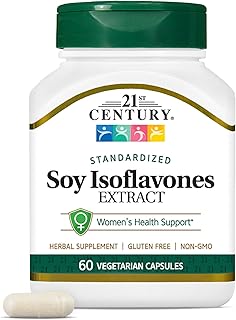Soy isoflavones have long been a topic of debate, with concerns ranging from their potential health benefits to their endocrine-disrupting effects. These phytoestrogens, found abundantly in soy and other legumes, have been associated with various health outcomes, including alleviating menopausal symptoms and improving bone health. However, questions remain about their impact on hormone-related cancers and their effects on vulnerable populations like children.
Regulatory agencies, including the French Agency for Food, Environmental and Occupational Health & Safety (ANSES), have issued recommendations regarding isoflavone consumption, particularly focusing on children, women of reproductive age, and pregnant women. ANSES established toxicological reference values for daily intake, emphasizing the need for caution due to the risk of surpassing these limits, especially with soy-based products.
While ANSES’s concerns are largely based on animal studies, experts highlight the limitations of extrapolating findings from rodents to humans. Differences in metabolism and dosing between species raise questions about the relevance of animal data to human health assessments. Human studies, on the other hand, paint a more reassuring picture, showing no significant adverse effects of soy consumption on pubertal development or hormonal balance.
Contrary to ANSES’s precautionary approach, other health authorities, such as the European Food Safety Authority and the US National Institutes of Health, have deemed soy safe for consumption, emphasizing its role as a healthy food choice. Long-term evaluations of children fed soy formulas have shown no detrimental hormonal effects, supporting the safety of soy-based diets in childhood.
The debate over soy isoflavones underscores the challenges of translating scientific evidence into public health policy. While precautionary principles are essential in mitigating potential risks, evidence-based recommendations should also consider the nutritional benefits of soy products. Collaborative efforts among regulatory agencies and researchers are crucial to developing comprehensive guidelines that balance safety and nutritional value.
In conclusion, soy foods remain a safe and valuable component of human diets, supported by extensive research across diverse populations. Emphasizing the benefits of soy consumption alongside safety considerations is vital for shaping effective dietary recommendations and promoting overall health and sustainability.
📰 Related Articles
- Soy Consumption: Experts Debunk Health Concerns and Highlight Benefits
- Soy Protein Benefits for Heart Health and Diabetes Management
- Soy Milk: Benefits for Health and Body Wellness
- Soy Milk: A Nutritious Dairy-Free Alternative with Health Benefits
- Health Risks in Feminine Care Products Spark Safety Concerns






